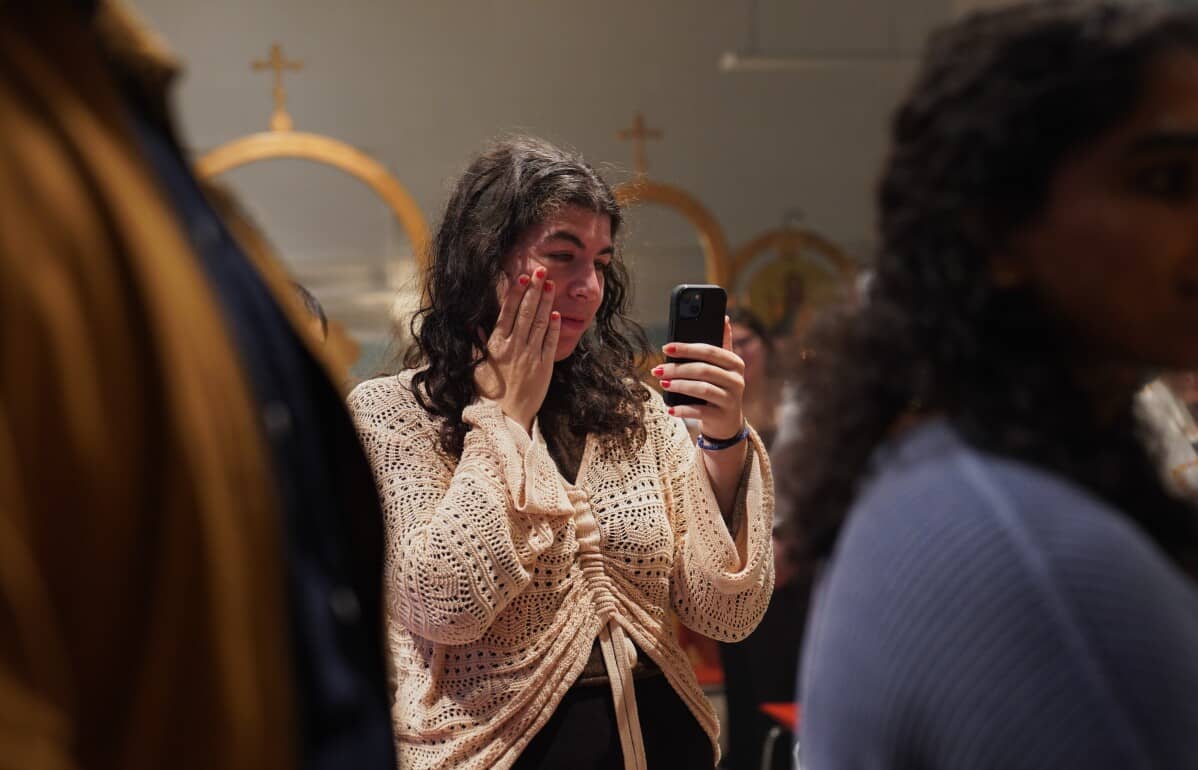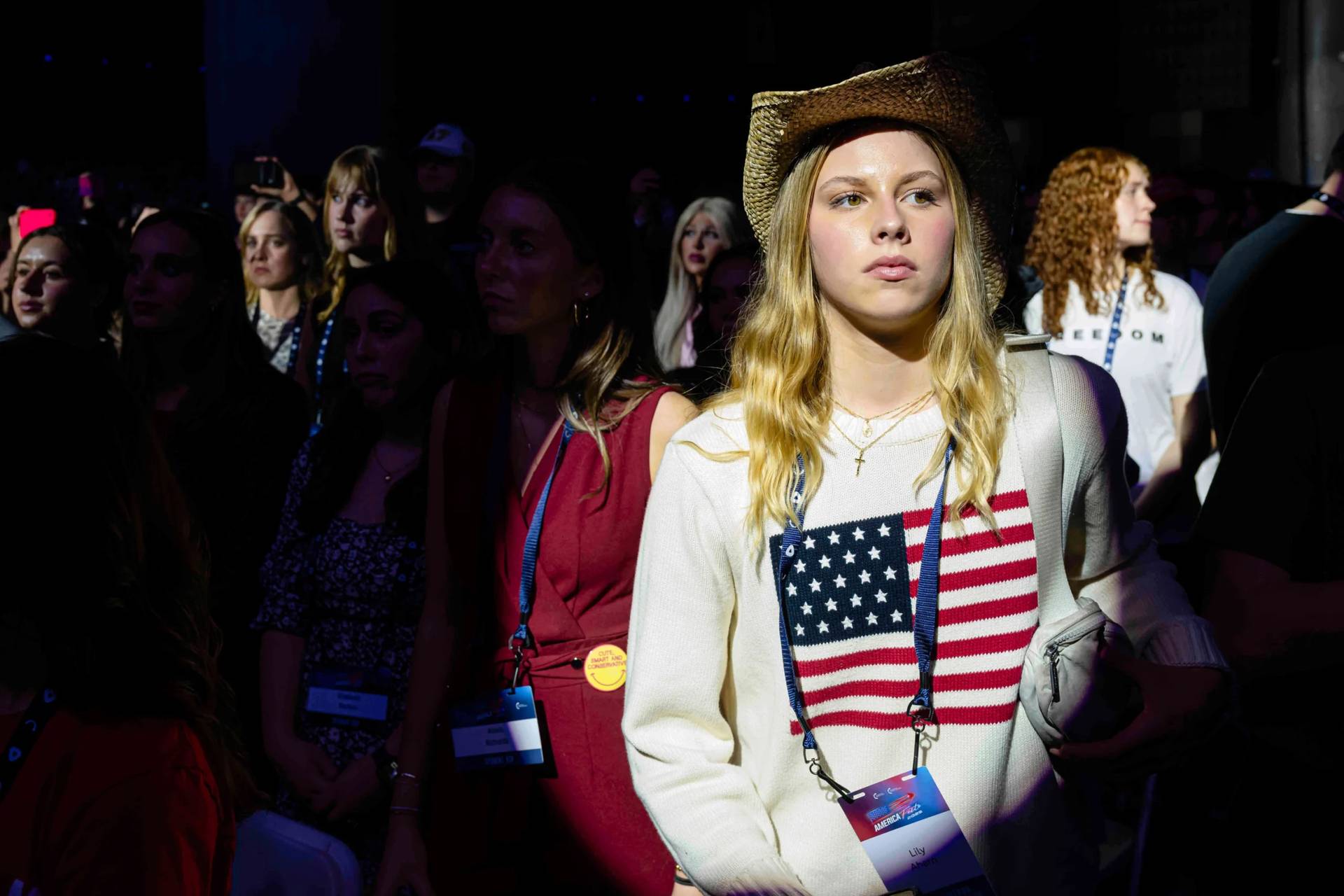I am grateful for Professor Bulzacchelli’s response to my suggestion that “Trumpism” is a heresy. Though we obviously have important disagreements, his argument draws even more attention to the relationship between support of Trumpism and faithful witness to the Gospel. This is all to the good.
Unfortunately, Bulzacchelli made a number of rapid-fire, sometimes unsupported critiques in his short piece. Even more unfortunately, he did so with inflamed rhetoric, interjecting personal attacks into the broader point he made.
For instance, the normally careful theologian began his response to my position by claiming, “Catholic support for Trump could only be regarded as ‘disturbingly’ high, however, if support for Trump is somehow intrinsically evil and incompatible with the faith – a position Camosy in fact proposes.”
This is an unfortunate way to begin, for it does not follow that if Catholic support for Trump is disturbingly high such support must be intrinsically evil, and I never once propose that support for Trump or Trumpism is intrinsically evil.
There is much confusion about the moral theology intrinsically evil acts, especially in relationship to voting. Here is a helpful piece from Professor Jana Bennett which explains the confusion.
My primary reason for referencing the heresy of Americanism – the political-religious ideas proposed by many people in the U.S. Church of the late 19th century condemned by the Vatican – was to clear the conceptual space for my main argument by invoking the historical unease Rome has had with many values and principles central to the political and broader culture of the United States.
Pope Leo XIII was, in fact, worried about Catholic Americans capitulating to specifically American values (that is, the values of the nation-state) over and against the Gospel. The heresy was called “Americanist” for a reason—there was significant worry even bishops like John Ireland were letting their American modernism push aside some central teachings of the Catholic Church.
This is not the only time that the United States has been slapped down by Rome, of course, and other heresies also line up nicely with the “America First” focus of Trumpism. Pius XI’s condemnation of “Statolatry”, for instance, could not have a more fitting object than Trump’s inaugural address—which insisted on a politics which has “total allegiance to the United States of America.”
Again, patriotism is a good thing, but it becomes heretical when that good thing steps out of place and begins to dominate things which are higher. Catholic Americans owe total allegiance, not to the state, but to the Gospel of Jesus Christ.
The Church’s interpretation of Gospel means acknowledging that the mystical Body of Christ supersedes the body of the nation-state. In a related story, it also means that the universal destination of goods supersedes a parochial focus on “American interests.”
Bulzacchelli insists “America first” simply means, “The primary duty of the Federal Government is to look after the welfare of the citizens of the United States, and as the leader of this government, it is my pledge to be faithful to this duty, to safeguard the interests of the citizens of the United States before turning to other concerns.”
But this is unresponsive to my argument. It is uncontroversial, of course, to say that the President should first address the interests of citizens of the United States. My point in the piece was rather about what American Christians should be interested in. Christian Americans, it is equally uncontroversial to say, should be interested in their country respecting the Gospel.
In response to those who would say abortion on request is essential for the professional flourishing and individual freedom of U.S. citizens, we must say, “No.” In response to those who would say the United States must have usurious economic practices and policies to maximize economic efficiency and GDP growth, we must say, “No.” In response to those who would say we must destroy early human life to save Americans from devastating diseases, we must say “No.”
Each of these practices may serve the interests of the United States and its citizens, especially given a certain kind of utilitarian calculation, but Christians must insist on serving the Gospel instead of these interests.
The “America First” stance of Trump and his administration, of course, has led to arguments and policies which serve the interests of the United States but are contrary to the Gospel:
- reconsidering and lauding torture
- “taking the oil” from Iraq after our invasion (a war crime)
- intentionally murdering the innocent children of suspected terrorists
- leaving refugees to die in Syria and other places
- sending undocumented immigrants to almost certain death in their country of origin—and even separating mothers and children at the border when doing so
I have seen a disturbing number of American Catholics try to defend these practices (especially on social media), and it is almost always through a kind of “America First” calculation wrought of Trumpism.
Many of the above policies, using such a calculation, do have the potential to benefit the United States, but must not be where our focus should be as American Christians. Our total allegiance must be to the Gospel, not the United States.
Charles C. Camosy is Associate Professor of Theological and Social Ethics at Fordham University and Co-Editor of Polarization in the US Catholic Church.

















